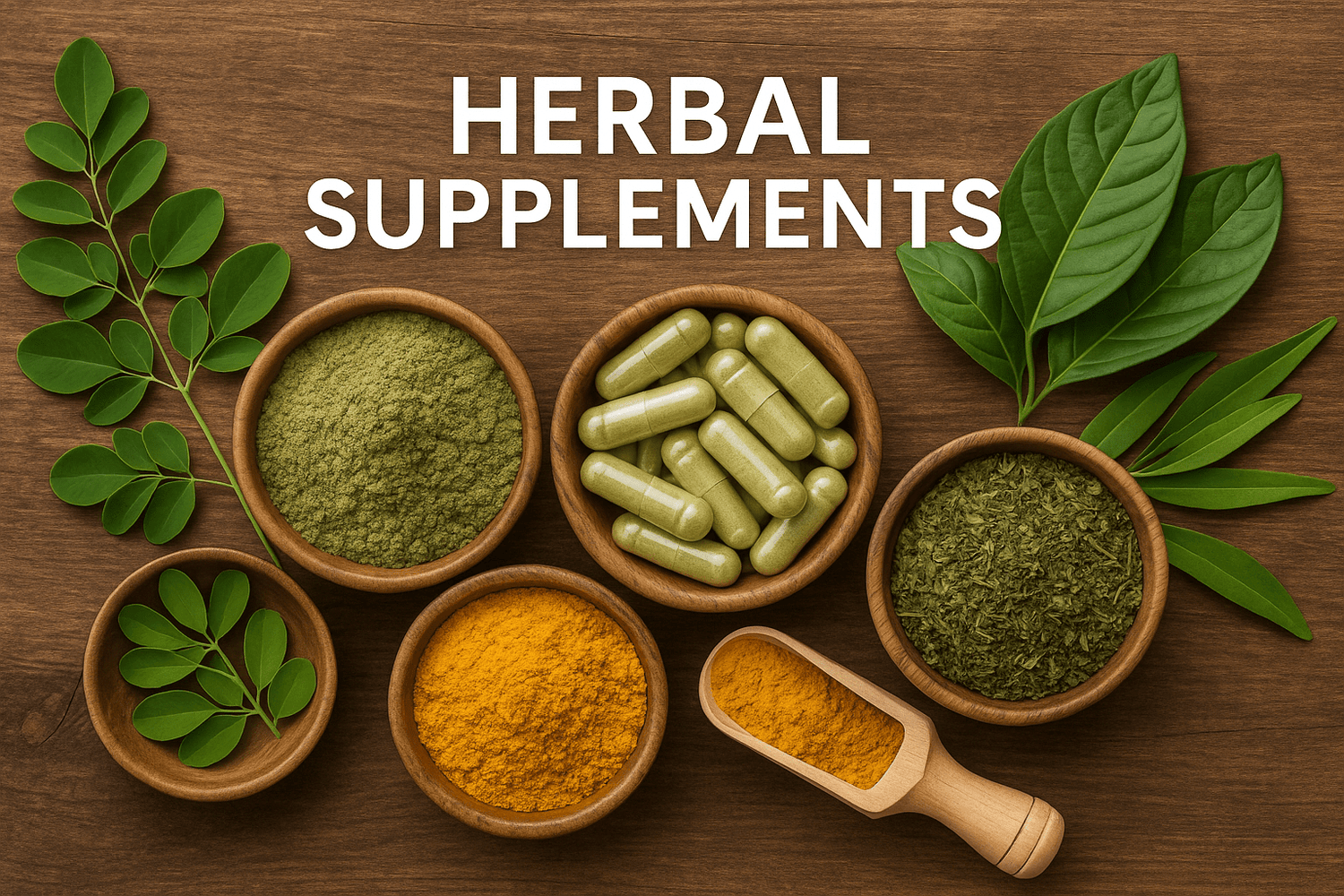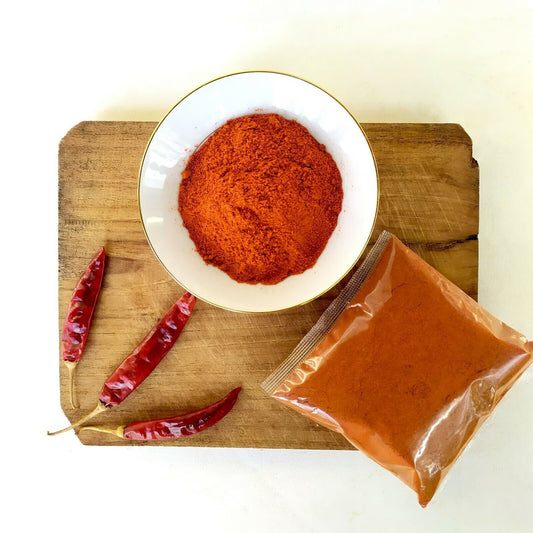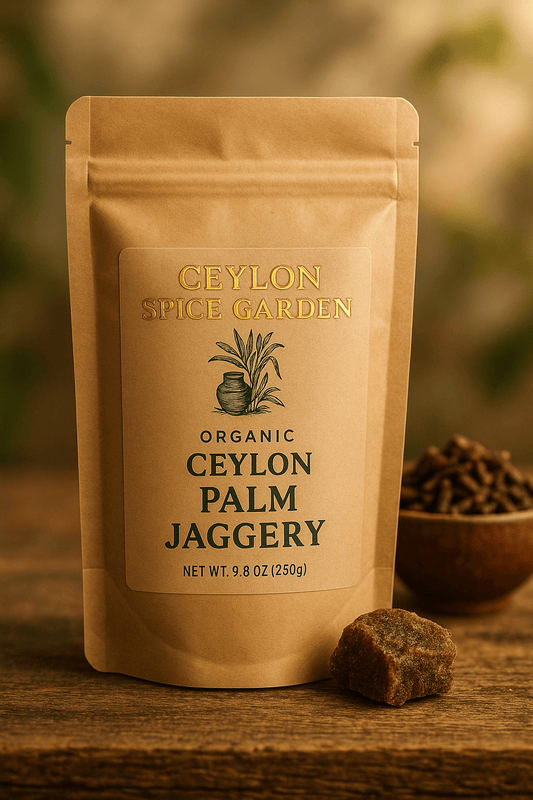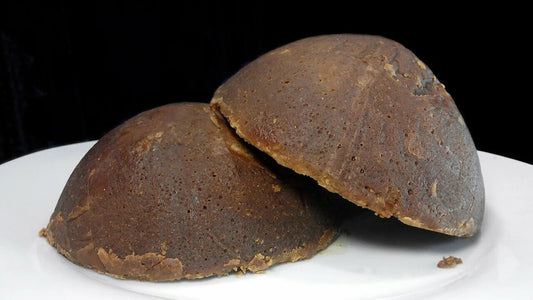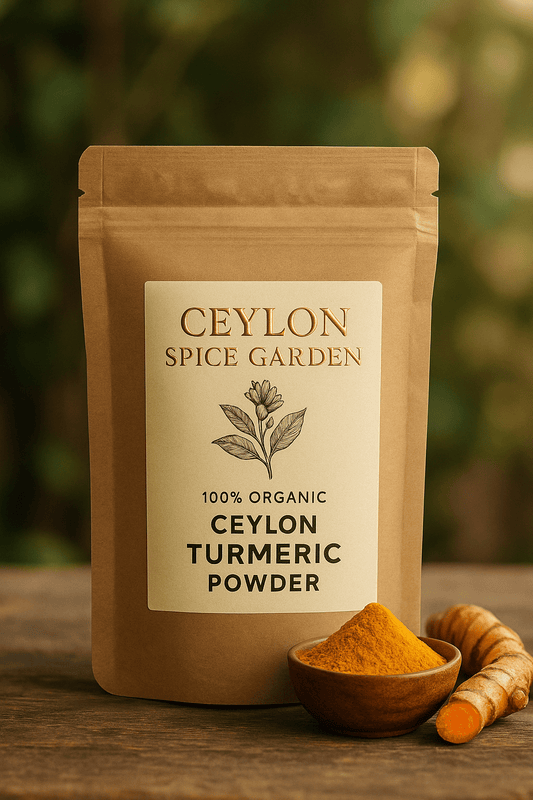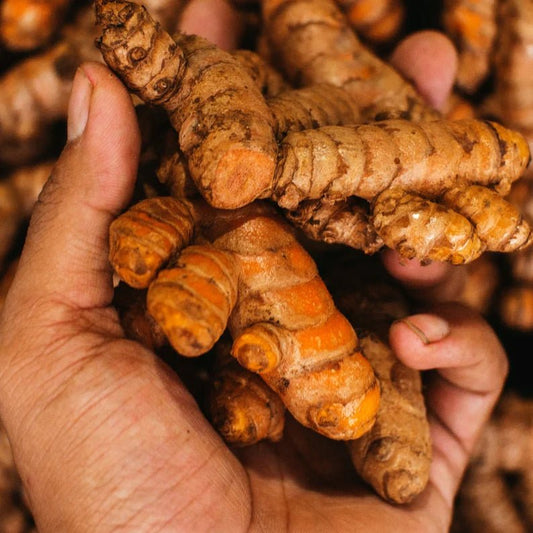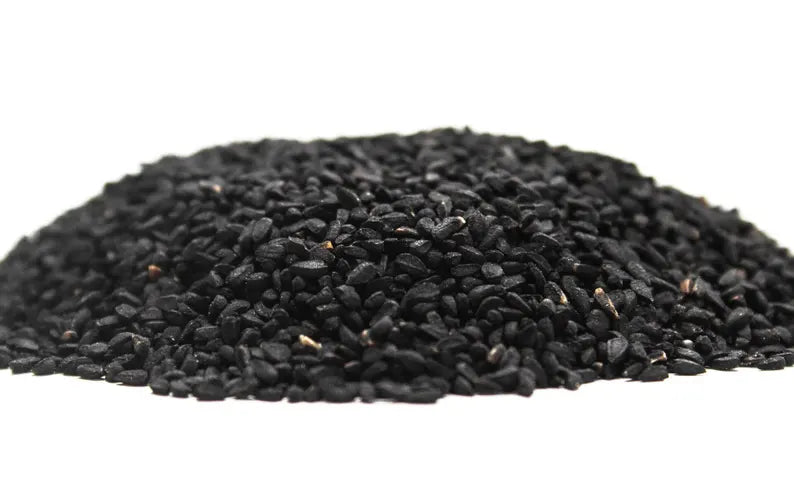
Black Cumin Seed Oil Health Benefits Backed by Science | Ceylon Spice Garden
Black Cumin Seed Oil Health Benefits Backed by Science
Table of Contents
- What is Black Cumin Seed Oil?
- Nutritional Profile & Active Compounds
- Immune System Support
- Anti-Inflammatory Properties
- Cardiovascular Health Benefits
- Blood Sugar Management
- Respiratory Health
- Digestive Health Benefits
- Skin & Hair Health
- Weight Management
- Cognitive & Brain Health
- Cancer Research & Prevention
- Liver Protection
- Kidney Function Support
- Dosage & Usage Guidelines
- Side Effects & Precautions
- Why Choose Sri Lankan Black Cumin?
- Frequently Asked Questions
What is Black Cumin Seed Oil?
Black cumin seed oil, extracted from Nigella sativa seeds, has been revered for over 3,000 years as a powerful natural remedy. Known by various names including black seed oil, kala jeera, and "Habbat al-Barakah" (blessed seed), this remarkable oil was discovered in King Tutankhamun's tomb, highlighting its historical significance in ancient medicine.
The oil is cold-pressed from the small, triangular black seeds of the Nigella sativa plant, which belongs to the buttercup family. Unlike regular cumin (Cuminum cyminum), black cumin offers unique therapeutic compounds that have attracted modern scientific research worldwide.
Nutritional Profile & Active Compounds
The therapeutic power of black cumin seed oil lies in its rich concentration of bioactive compounds. The most significant is thymoquinone, which comprises 30-48% of the oil's volatile compounds and is responsible for many of its health benefits.
| Active Compound | Percentage | Primary Benefits |
|---|---|---|
| Thymoquinone | 30-48% | Anti-inflammatory, antioxidant, antimicrobial |
| p-Cymene | 7-15% | Antimicrobial, analgesic properties |
| α-Pinene | 7-15% | Bronchodilator, anti-inflammatory |
| Dithymoquinone | 2-5% | Antioxidant, neuroprotective |
| Thymohydroquinone | 1-4% | Acetylcholinesterase inhibitor |
Immune System Support
One of the most well-documented benefits of black cumin seed oil is its ability to modulate and strengthen the immune system. Research published in the Journal of Ethnopharmacology demonstrates that regular consumption can increase T-helper cell activity by up to 72%.
Key Immune Benefits:
- Enhanced white blood cell production - Supports the body's primary defense mechanism
- Improved antibody response - Better recognition and elimination of pathogens
- Balanced immune function - Prevents both under-activity and autoimmune responses
- Antiviral properties - Studies show effectiveness against various viral infections
Anti-Inflammatory Properties
Chronic inflammation is at the root of many modern diseases, from arthritis to heart disease. Black cumin seed oil's powerful anti-inflammatory effects are primarily attributed to thymoquinone, which inhibits key inflammatory pathways including COX-2 and 5-LOX enzymes.
A randomized controlled trial published in Complementary Therapies in Medicine found that participants taking 2 grams of black seed oil daily for 12 weeks showed significant reductions in inflammatory markers including C-reactive protein (CRP) and interleukin-6 (IL-6).
Conditions That May Benefit:
- Rheumatoid arthritis and joint pain
- Inflammatory bowel diseases
- Asthma and allergic conditions
- Skin inflammatory conditions like eczema
Cardiovascular Health Benefits
Cardiovascular disease remains the leading cause of death globally, making heart health a critical concern. Multiple studies have demonstrated black cumin seed oil's cardioprotective effects through several mechanisms.
Heart Health Research Findings:
Cholesterol Reduction: A meta-analysis of 17 clinical trials found that black seed oil supplementation significantly reduced total cholesterol by an average of 15.6 mg/dL and LDL cholesterol by 13.6 mg/dL.
Blood Pressure: Studies show modest but consistent reductions in both systolic and diastolic blood pressure, particularly beneficial for individuals with mild hypertension.
| Cardiovascular Benefit | Mechanism of Action | Research Evidence |
|---|---|---|
| Cholesterol Reduction | Inhibits HMG-CoA reductase enzyme | 17 clinical trials meta-analysis |
| Blood Pressure Control | ACE inhibition, vasodilation | Multiple RCTs showing 4-8 mmHg reduction |
| Antioxidant Protection | Prevents LDL oxidation | In vitro and animal studies |
| Improved Circulation | Nitric oxide enhancement | Endothelial function studies |
Blood Sugar Management
Type 2 diabetes affects over 400 million people worldwide, making natural blood sugar management solutions increasingly important. Black cumin seed oil has shown promising results in multiple diabetic studies.
A comprehensive review published in Complementary Therapies in Medicine analyzed data from 15 clinical trials involving over 1,000 participants with type 2 diabetes. The results showed consistent improvements in fasting blood glucose, HbA1c levels, and insulin sensitivity.
Diabetes Management Benefits:
- Improved insulin sensitivity - Enhanced cellular glucose uptake
- Reduced fasting glucose - Average reduction of 15-20 mg/dL
- Better HbA1c control - Long-term glucose management improvement
- Pancreatic beta-cell protection - Preserves insulin production capacity
Respiratory Health
Black cumin seed oil has been traditionally used for respiratory ailments for centuries, and modern research confirms its bronchodilatory and anti-asthmatic properties. The oil's volatile compounds, particularly thymoquinone and p-cymene, provide significant respiratory benefits.
A double-blind, placebo-controlled study published in the American Journal of Otolaryngology found that patients with allergic rhinitis who took black seed oil for 6 weeks showed significant improvements in nasal congestion, runny nose, nasal itching, and sneezing compared to placebo.
Respiratory Conditions That May Benefit:
- Asthma - Improved lung function and reduced symptoms
- Allergic rhinitis - Reduced inflammation and congestion
- Chronic cough - Anti-tussive properties
- Bronchitis - Antimicrobial and anti-inflammatory effects
Digestive Health Benefits
The digestive system is often called the "second brain" due to its complex neural network and crucial role in overall health. Black cumin seed oil supports digestive wellness through multiple pathways.
Digestive Health Mechanisms:
- Gastroprotective effects - Protects stomach lining from acid damage
- Anti-ulcer properties - Promotes healing of gastric ulcers
- Antimicrobial action - Fights harmful bacteria like H. pylori
- Gut microbiome support - Promotes beneficial bacteria growth
Research published in World Journal of Gastroenterology demonstrated that black cumin seed oil could reduce gastric acid secretion and protect against stress-induced gastric ulcers in animal models, with similar protective effects observed in human studies.
Skin & Hair Health
The antioxidant and antimicrobial properties of black cumin seed oil make it an excellent choice for topical skin and hair care. Its rich fatty acid profile, including linoleic acid and oleic acid, provides deep moisturization and barrier repair.
| Skin/Hair Benefit | Active Compounds | Application Method |
|---|---|---|
| Eczema & Dermatitis | Thymoquinone, linoleic acid | Topical application 2-3 times daily |
| Acne Treatment | Antimicrobial compounds | Spot treatment or diluted application |
| Hair Growth | Essential fatty acids, vitamins | Scalp massage 2-3 times weekly |
| Anti-aging | Antioxidants, vitamin E | Facial serum or moisturizer addition |
A clinical trial published in Journal of Dermatological Treatment found that participants with hand eczema who applied black seed oil twice daily for 4 weeks showed significant improvement in symptoms compared to those using conventional treatments.
Weight Management
Obesity is a global epidemic linked to numerous health complications. Black cumin seed oil may support healthy weight management through several mechanisms, including improved metabolism, appetite regulation, and fat oxidation.
A systematic review and meta-analysis published in Diabetes & Metabolic Syndrome analyzed 11 randomized controlled trials and found that black seed supplementation led to significant reductions in body weight, BMI, and waist circumference compared to placebo groups.
Weight Management Mechanisms:
- Metabolic boost - Increases thermogenesis and energy expenditure
- Appetite suppression - Helps control food cravings and portion sizes
- Fat oxidation - Promotes breakdown of stored fat for energy
- Blood sugar stability - Prevents insulin spikes that promote fat storage
Cognitive & Brain Health
The brain requires constant protection from oxidative stress and inflammation, both of which contribute to cognitive decline and neurodegenerative diseases. Black cumin seed oil's neuroprotective compounds show promising results in brain health research.
Studies have demonstrated that thymoquinone can cross the blood-brain barrier and provide direct neuroprotection. Research published in Neuroscience Letters showed that black seed oil supplementation improved memory formation and retrieval in both animal and human studies.
Cognitive Benefits Include:
- Enhanced memory and learning capacity
- Improved focus and mental clarity
- Protection against age-related cognitive decline
- Potential support for Alzheimer's prevention
- Reduced brain inflammation and oxidative stress
Cancer Research & Prevention
While not a cure, black cumin seed oil has shown promising anticancer properties in numerous laboratory studies. The National Cancer Institute has recognized thymoquinone as one of the most promising natural compounds for cancer research.
Laboratory studies have shown that black seed oil compounds may help:
- Inhibit cancer cell proliferation
- Induce programmed cell death (apoptosis) in cancer cells
- Prevent metastasis (cancer spread)
- Enhance the effectiveness of conventional treatments
- Reduce chemotherapy side effects
Liver Protection
The liver is the body's primary detoxification organ, processing toxins, medications, and metabolic waste. Black cumin seed oil provides significant hepatoprotective benefits, particularly important in our toxin-laden modern environment.
Research published in Phytotherapy Research demonstrated that black seed oil could protect against liver damage caused by various toxins, including acetaminophen overdose, alcohol, and environmental pollutants.
Liver Health Benefits:
- Detoxification support - Enhances liver's natural cleansing processes
- Hepatocyte protection - Shields liver cells from damage
- Regeneration promotion - Supports liver tissue repair and renewal
- Bile production optimization - Improves fat digestion and absorption
Kidney Function Support
Kidney health is crucial for blood filtration, electrolyte balance, and waste elimination. Studies suggest that black cumin seed oil may provide nephroprotective benefits, particularly in preventing kidney stones and supporting overall renal function.
A study published in International Journal of Nephrology found that patients with chronic kidney disease who supplemented with black seed oil showed improvements in kidney function markers, including reduced creatinine levels and improved glomerular filtration rate.
Dosage & Usage Guidelines
Proper dosing is crucial for obtaining optimal benefits while minimizing potential side effects. Dosage recommendations vary based on the intended use and individual factors.
| Purpose | Recommended Dosage | Duration | Notes |
|---|---|---|---|
| General Wellness | 1-2 teaspoons (5-10ml) daily | Ongoing | Take with food to improve absorption |
| Immune Support | 1000-2000mg capsules daily | 3-6 months | Best taken during seasonal transitions |
| Cardiovascular Health | 2-3 grams daily | 3-6 months | Monitor blood pressure regularly |
| Blood Sugar Support | 1-2 grams twice daily | 3-4 months | Take with meals, monitor glucose levels |
| Topical Use | Apply directly or dilute 1:1 | As needed | Patch test before widespread use |
Best Practices for Taking Black Cumin Seed Oil:
- Start slowly - Begin with smaller doses to assess tolerance
- Take with food - Improves absorption and reduces stomach upset
- Choose quality products - Look for cold-pressed, organic oils
- Store properly - Keep in cool, dark places to preserve potency
- Be consistent - Regular use provides cumulative benefits
Side Effects & Precautions
While generally safe for most people, black cumin seed oil can cause side effects in some individuals, particularly when taken in large amounts or by those with certain health conditions.
Potential Side Effects:
- Digestive issues - Nausea, stomach upset, or diarrhea
- Allergic reactions - Skin rash, itching, or respiratory symptoms
- Blood sugar changes - May enhance diabetes medications
- Blood pressure effects - Can lower blood pressure significantly
- Skin sensitivity - Topical use may cause irritation in sensitive individuals
- Pregnant and nursing women - Limited safety data available
- Children under 12 - Dosing guidelines not well established
- People with bleeding disorders - May increase bleeding risk
- Those taking medications - Potential interactions with diabetes, blood pressure, and blood-thinning medications
- Surgery patients - Stop use 2 weeks before scheduled procedures
Why Choose Sri Lankan Black Cumin?
Not all black cumin seed oils are created equal. Sri Lankan black cumin, grown in the pristine highlands of Ceylon, offers superior quality due to optimal growing conditions, traditional cultivation methods, and strict quality standards.
Ceylon Spice Garden's Premium Black Cumin Seeds
Our organically grown Sri Lankan black cumin seeds are cultivated in pesticide-free environments using traditional methods passed down through generations. Each seed is carefully selected and cold-pressed to preserve maximum potency.
- ✓ 100% Organic certification
- ✓ Higher thymoquinone content (up to 48%)
- ✓ Cold-pressed extraction method
- ✓ Third-party tested for purity
- ✓ Sustainable farming practices
- ✓ Direct from farm to your door
| Factor | Sri Lankan Black Cumin | Regular Black Cumin |
|---|---|---|
| Thymoquinone Content | 40-48% | 30-35% |
| Growing Conditions | Highland tropical climate | Variable conditions |
| Harvesting Method | Hand-picked at optimal maturity | Often machine harvested |
| Processing | Traditional cold-pressing | May use heat or chemicals |
| Purity | Third-party tested, certified organic | Quality varies by supplier |
The Future of Natural Health is Here
Black cumin seed oil represents one of nature's most comprehensive healing solutions, backed by thousands of years of traditional use and modern scientific validation. From immune support to cardiovascular health, from brain protection to natural beauty, this remarkable oil offers benefits that span virtually every aspect of human wellness.
Ready to experience the transformative power of premium Sri Lankan black cumin seed oil?
Start Your Wellness Journey TodayFrequently Asked Questions
Black cumin seed oil is extracted from Nigella sativa seeds, also known as black seeds or kala jeera. Despite the name similarity, it's completely different from regular cumin (Cuminum cyminum). Black cumin contains powerful compounds like thymoquinone, which provide numerous health benefits including anti-inflammatory, antioxidant, and immune-supporting properties. Regular cumin, while nutritious, doesn't contain these therapeutic compounds.
The typical recommended dosage ranges from 500mg to 2000mg daily, depending on the intended use. For general wellness, 1-2 teaspoons (5-10ml) of oil or 500-1000mg in capsule form is commonly recommended. For specific health conditions, higher doses may be beneficial, but it's important to start slowly and consult with a healthcare provider before taking therapeutic amounts.
Black cumin seed oil is generally safe for most people when used in recommended amounts. Some may experience mild digestive upset, skin irritation, or allergic reactions. It may enhance the effects of diabetes and blood pressure medications, so monitoring is important. Pregnant women, nursing mothers, and people with bleeding disorders should consult healthcare providers before use.
Research suggests that black cumin seed oil may support healthy weight management through several mechanisms: boosting metabolism, suppressing appetite, promoting fat oxidation, and stabilizing blood sugar levels. A meta-analysis of 11 clinical trials showed significant reductions in body weight, BMI, and waist circumference. However, it should be combined with a healthy diet and exercise for best results.
Yes, black cumin seed oil is commonly used topically for various skin conditions including eczema, acne, and general skin health. Its anti-inflammatory and antimicrobial properties make it beneficial for skin application. However, it's recommended to perform a patch test first to check for sensitivity. For sensitive skin, dilute the oil 1:1 with a carrier oil like coconut or jojoba oil.
Sri Lankan black cumin seed oil is considered superior due to optimal growing conditions in Ceylon's highlands, traditional cultivation methods, and higher concentrations of active compounds. Ceylon-grown black cumin typically contains 40-48% thymoquinone compared to 30-35% in regular varieties. The seeds are hand-picked at optimal maturity and cold-pressed to preserve maximum potency, resulting in a more therapeutic product.
Results can vary depending on the condition being addressed and individual factors. Some people notice improvements in energy and digestion within days to weeks. For chronic conditions like high cholesterol, blood sugar management, or inflammatory conditions, it typically takes 3-6 months of consistent use to see significant results. Topical applications for skin conditions may show improvements within 2-4 weeks.
While black cumin seed oil can generally be taken with other supplements, it may interact with certain medications, particularly those for diabetes, blood pressure, and blood thinning. It can enhance the effects of these medications, potentially causing blood sugar or blood pressure to drop too low. Always consult with a healthcare provider before combining black cumin seed oil with medications or if you have any underlying health conditions.
Both forms have advantages. Pure oil is more versatile as it can be used both internally and topically, and absorption may be better when taken with food. Capsules are more convenient for daily use and eliminate the strong taste that some find unpleasant. For therapeutic purposes, oil is often preferred due to higher bioavailability. For convenience and standardized dosing, capsules may be better. Choose based on your preferences and intended use.
Store black cumin seed oil in a cool, dark place away from direct sunlight and heat. Refrigeration can extend shelf life, especially in warm climates. Keep the bottle tightly sealed to prevent oxidation. Pure, cold-pressed oil typically lasts 12-18 months when stored properly. If the oil develops a rancid smell or taste, it should be discarded. Always check expiration dates and buy from reputable sources to ensure freshness and potency.
